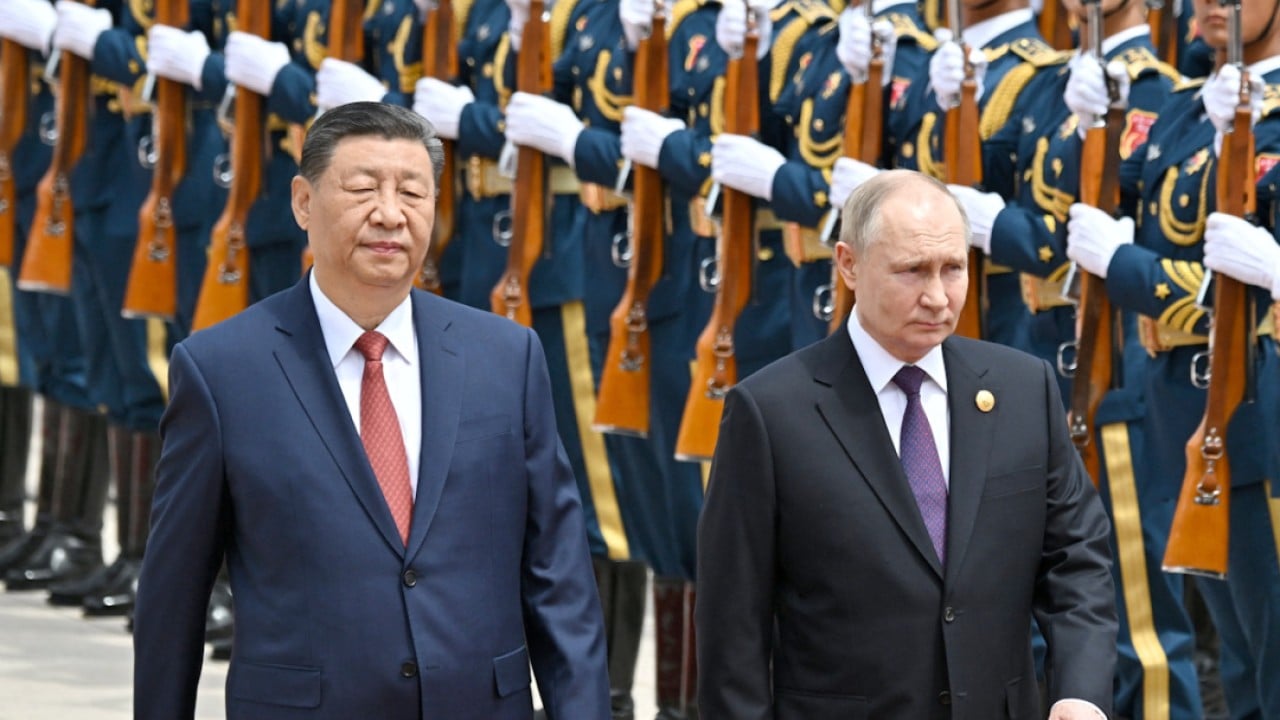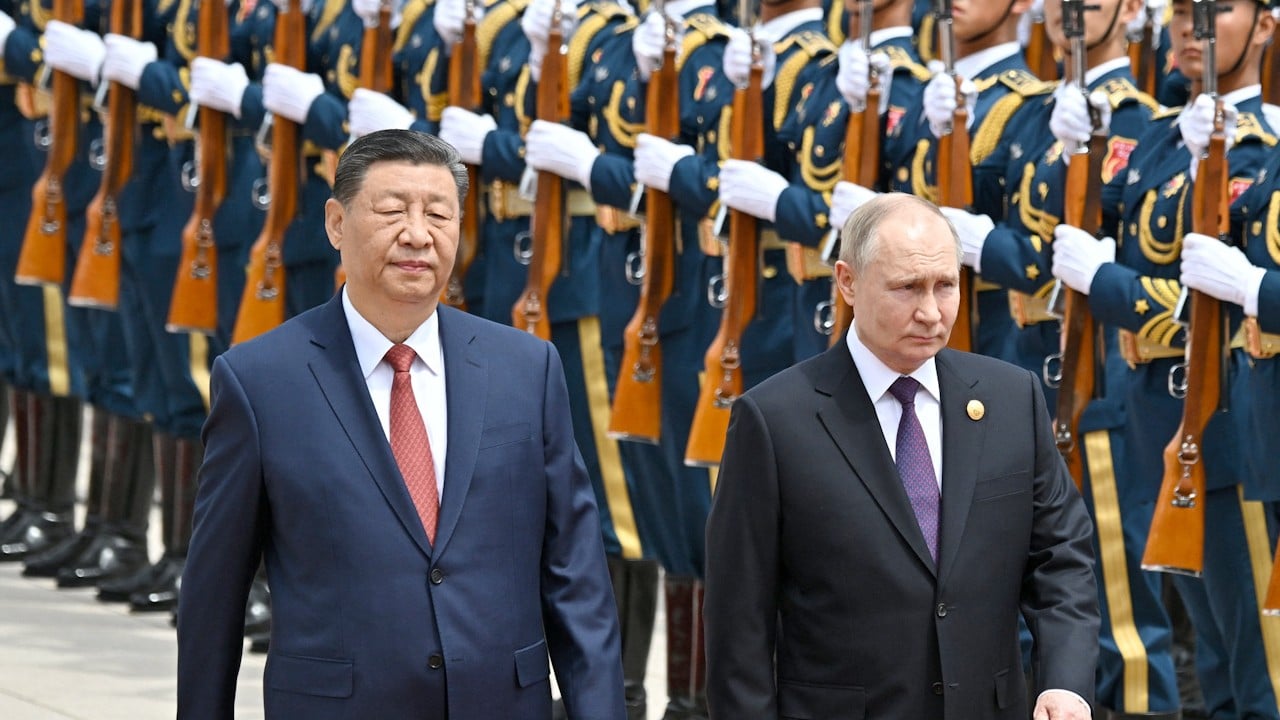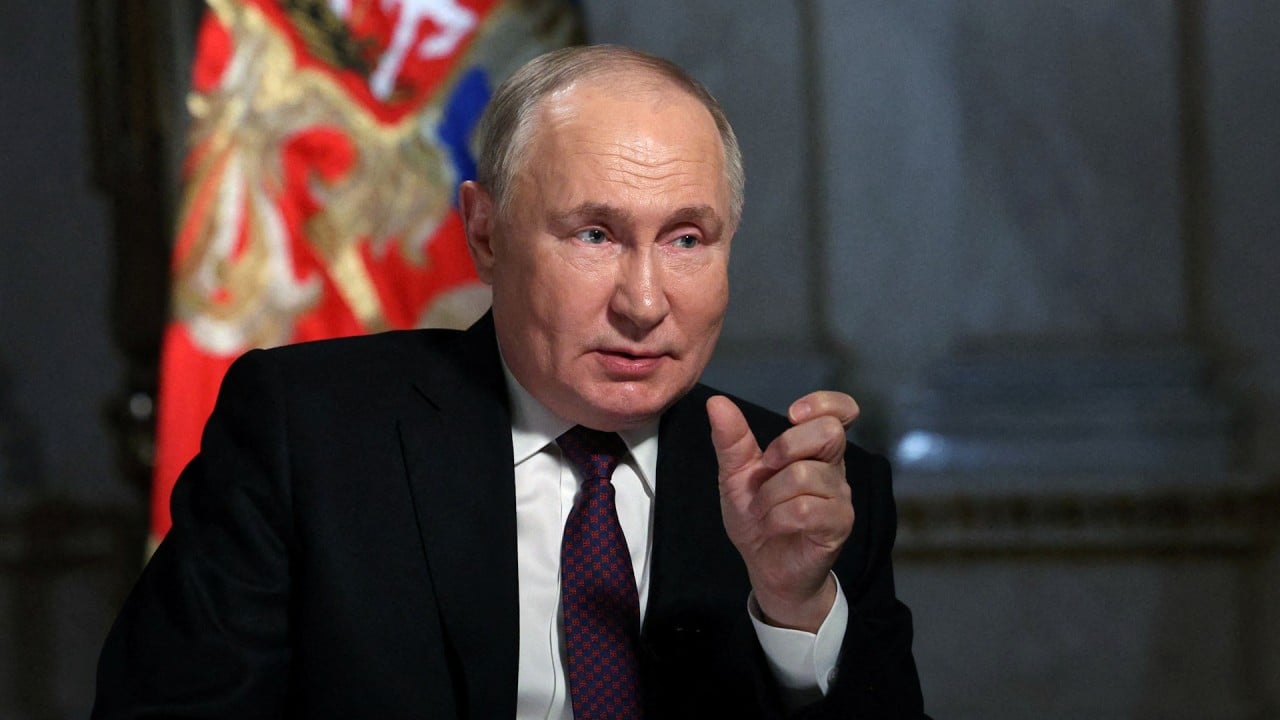In recent weeks, the 25th floor of the Shanghai Tower has been swarmed with Chinese exporters. Legions of businesspeople have flocked from all over the country to open a new account at VTB Bank – the only Russian bank currently in operation within China’s borders.
Among the crowd on Tuesday was Yeno Yan, an agricultural machinery manufacturer who had flown in from the eastern province of Shandong. Eager to clear up headaches caused by trying to collect payments from Russian clients – a common problem for Chinese traders in the years since hefty sanctions were imposed on Moscow over its February 2022 invasion of Ukraine – Yan instead found more frustration.
“We could only make arrangements for a rain check,” Yan said. “All of us hit a wall, unable to see anyone.”
Yan had hoped that his company could open an account at Chinese banks near the country’s northeast border with Russia. Those smaller banks, unlike the state-owned behemoths, seemed more willing to take the risk.
“It’s too far away, and we’ve heard that they have also recently suspended forex services,” he lamented.
Chinese firms are doing their utmost to facilitate trade with Russian partners, which hit a record high of US$240 billion last year on strong domestic demand for Russian energy products and Russian purchases of Chinese cars, consumer goods and other products.
Many have had trouble with payment delays. Some smaller players are so cash-strapped and desperate they are beginning to ponder pulling out of the Russian market entirely.
Exports from China to its northern neighbour fell 15.7 per cent year on year in March, and a year-on-year drop of 13.6 per cent was recorded last month by China’s General Administration of Customs. For the period from January to April, the administration recorded a decline of 1.9 per cent year on year.
After their meeting last week in Beijing, President Xi Jinping and Russian President Vladimir Putin spoke about promoting the use of local currency in cross-border settlements, as well as payment tools and platforms for trade and business among the Brics bloc – the coalition of emerging economies which includes Brazil, Russia, India, China and South Africa as members.
No details on short-term solutions to payment issues were mentioned, however.
On the Russian end, buyers are also concerned. Although both countries have their own equivalents to the Society for Worldwide Interbank Financial Telecommunication system – the pre-eminent platform for international payment clearings – and a majority of bilateral trade is now settled in the yuan or rouble rather than the US dollar or euro, there are still some sticking points that limit bilateral trade.
“A majority of Russian companies are forced to use services of middlemen with an extra cost of 3 to 6 per cent of invoice price,” said Maxim Kuznetsov, chairman of the Russian-Asian Business Council.
“The key Chinese banks are afraid to cooperate with Russia due to risk of secondary US sanctions … At this moment only VTB has a Chinese branch and can maintain settlements as usual.”
VTB, Russia’s second-largest bank, has already been added to the US sanctions list, along with its CEO Andrey Kostin.
In an earlier interview with the Post in October, Kostin said that the bank’s Shanghai branch, which opened in 2008, employed 40 people and can play an important role in broader China-Russia cooperation.
In the same interview, he also expressed interest in joining China’s yuan-centred payment network, the Cross-Border Interbank Payment System. “We should have more direct corresponding bank accounts to deal in roubles and yuan, and we should create a new international depository settlement hub.”
Russian buyers want Chinese exporters to open accounts at Russian banks so that payment can be made … but we’re worried about potential risks
Many Chinese exporters are anxiously waiting for new developments, as Russia is a promising market immune to Western barriers on products made in China.
Rick Wang, sales manager for a down jacket manufacturer in Zhejiang province, said even when trade is settled in yuan it has become more difficult. An even greater burden of proof has been required since March, such as certificates of non-military use for Russian clients, legal shareholder certificates and bills of lading.
The Russian market now accounts for about 20 per cent of overseas orders for Wang’s company. The payment cycle has consequently increased, from less than three months to more than five.
“Now, Russian buyers want Chinese exporters to open accounts at Russian banks so that payment can be made,” Wang said. “But we’re worried about potential risks, like fund security and [the possibility] opening an account with a Russian bank will put a firm on the sanctions list.”
This has had a detrimental effect on his firm’s planning, he said. “In the short term, our cash flow can still cope, but in the long run, it will definitely affect our expansion into the Russian market.”
For Tom Du, a machinery manufacturer from Jiangsu province, Russia is a safe haven for many Chinese exporters as their business goes through a rocky period.
“The entire foreign trade industry is particularly short of orders, with fierce competition and overcapacity,” he said – but he added that they are still delivering to long-time Russian clients on deadline.
“Our customers are also depositing payments to their bank accounts in China on time. It’s just a matter of when we can withdraw the funds,” Du said.
“Especially after Putin’s visit to China, I believe the payment issue will be addressed.”
Yan, Wang and Du all stated that they would not give up on expanding into the Russian market, and would continue to produce and ship even if they needed to advance capital to do so.
Jerry Ni, a trader of consumer goods also based in Zhejiang, expressed disappointment at the delays. Banks’ rigorous scrutiny of payments is now stretching the interval before deposit to three weeks.
“I can feel banks are overstretched, as they have to manually verify every deal and ask clients to file documents to prove the deal is legit,” Ni said.
It would be a pity to pull out from this big market
Although Russian clients are testing alternative ways to wire money by using different local banks and intermediaries, Ni said he could be forced to give up on the market if Chinese banks are forced to step up their auditing to keep pace with Western sanctions.
He said he would not turn to underground banks or other grey-area alternatives that are fraught with risk.
“Russia’s demand is strong, as it does not have a complete manufacturing sector for consumer goods. It would be a pity to pull out from this big market.”




